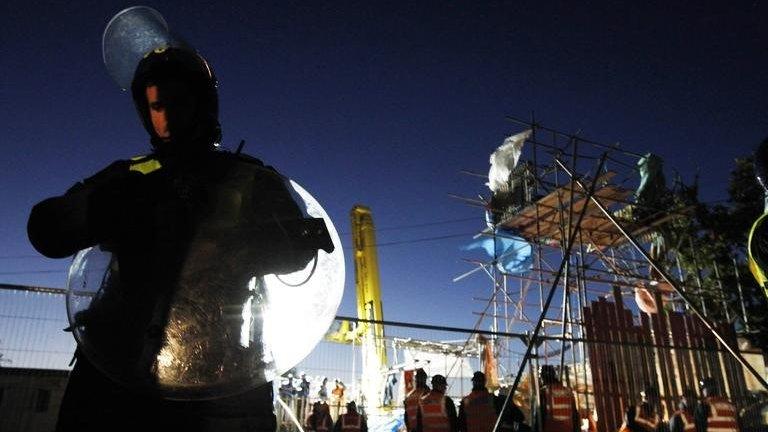Harlow illegal traveller sites ban 'unprecedented'
- Published
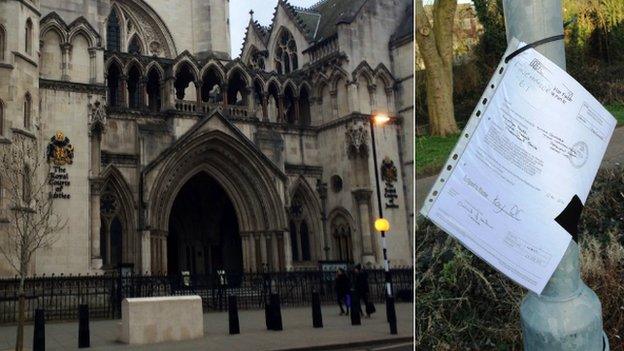
A High Court judge granted an interim injunction protecting 454 "parcels" of land from illegal encampments
Travellers have been banned from setting up illegal sites across the entirety of an Essex town in an "unprecedented" High Court ruling.
Harlow Council and Essex County Council applied for the interim injunction to prevent unauthorised camps from being set up on 454 "parcels" of land.
Since October 2013, 109 sites in Harlow have been used as illegal camps.
The Gypsy Council described the granting of the injunction as "like a police state".
Harlow Council's leader Jon Clempner said in a statement: "We had to look at something which has never been done before and is town-wide.
"This injunction is about protecting the town's vulnerable open spaces, upholding the law and responding and listening to the concerns of residents and businesses.
"It is not - and never has been - about persecuting any particular group of people or their way of life."
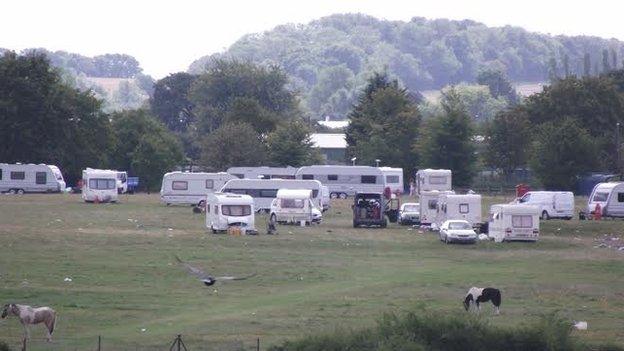
Harlow Council said it had dealt with 109 illegal traveller camps since October 2013
Harlow Council said although injunctions had been granted in other areas of the country, it believed no ban on this scale had ever been applied for and granted.
Last year, Leeds City Council secured an injunction protecting six "environmentally sensitive" areas of land.
Harlow's injunction applies to 35 named travellers and will mean land across the town will be protected from current and future illegal encampments by "persons unknown".
More than 300 of the sites covered by the court order are considered "vulnerable", including parks, playgrounds and previously occupied sites.
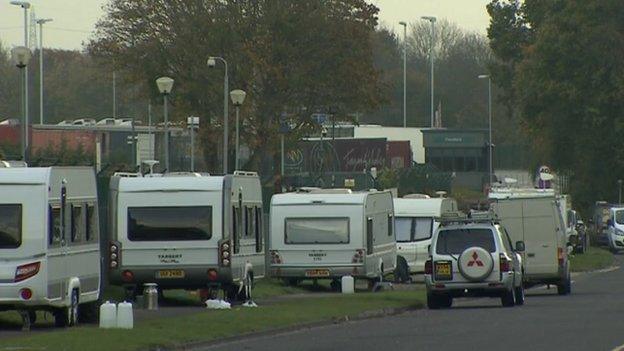
Harlow's injunction applies to 35 named travellers and protects 454 "parcels" of land
The interim injunction, granted by Mrs Justice Patterson, will remain in place until a hearing for the full injunction takes place later in the year, Harlow Council said.
If the injunction is breached, the person responsible can be fined or imprisoned for contempt of court.
Joseph Jones, a spokesman for the Gypsy Council, said the granting of the injunction was "like a police state".
"Unauthorised encampments are a reaction to lack of provision by local authorities," he said.
"What's to stop the government from applying for an injunction for the whole country and managing to totally wipe out a way of life, and a last resort for local people?"
- Published24 February 2015

- Published23 December 2014
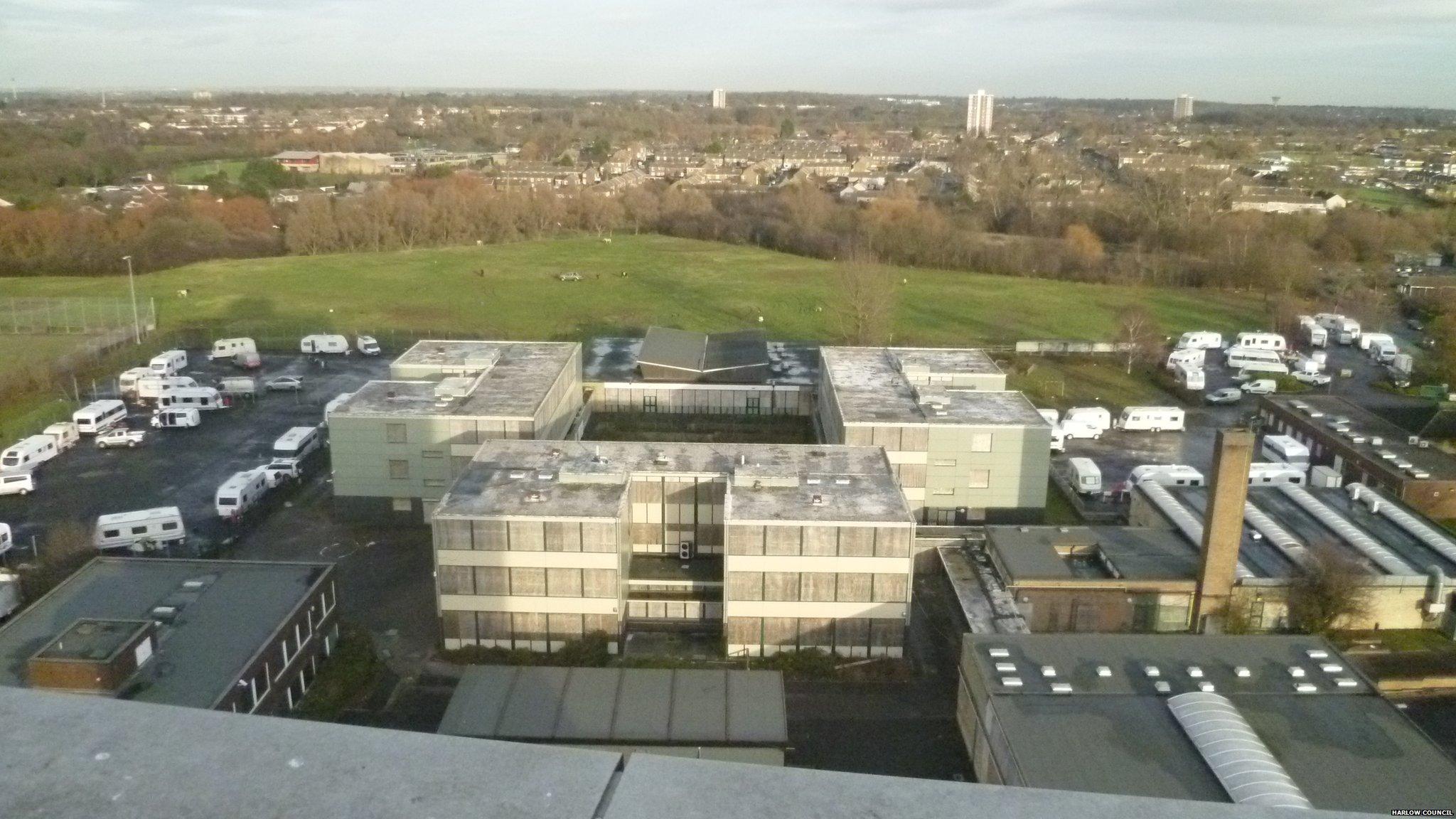
- Published5 November 2014

- Published18 October 2014
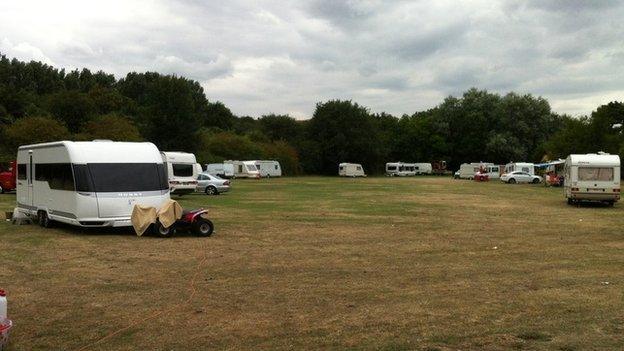
- Published9 August 2013
